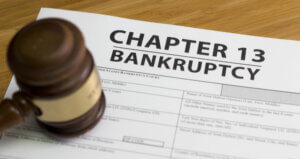 Before filing for bankruptcy, you need to qualify by passing a means test. Continue reading below to learn more helpful information.
Before filing for bankruptcy, you need to qualify by passing a means test. Continue reading below to learn more helpful information.
Are you undergoing tremendous financial pressure? You may be thinking about Chapter 7 bankruptcy.
However, you’re not sure how to qualify for bankruptcy. To know for certain, you must complete bankruptcy forms and calculate your income. Then, you’ll compare your earnings with your state’s income standards. If you fail, you may still have other options.
This article will help you determine if you can file for Chapter 7. Let’s explore.
How Do I Know if I Qualify?
First, you must pass a means test. On the test, note your income and finances. After that, you’ll determine if you meet the state’s standards for bankruptcy protection.
If your income falls below the state’s median income, you may qualify for bankruptcy. The average income for the past six months must be below the state median average of a family in the same category as you.
In addition to passing the test, you must meet the following criteria when applying for Chapter 7:
- You didn’t file for Chapter 7 bankruptcy in the past eight years.
- You didn’t file for Chapter 13 bankruptcy in the past six years.
- You completed a course from an approved credit counseling agency within 180 days before filing.
- A judge must dismiss a previous Chapter 7 or 13 case at least 181 days before refiling.
Since bankruptcy laws vary from state to state, make sure you understand local requirements as well. If you are unsure, you may want to consider seeking help from a bankruptcy legal professional in your area.
What Type of Forms Must I Complete?
Depending on your situation, you’ll need to complete one or two forms. First, you must complete Form 122A-1. This form requires information about your marital status and monthly income.
You’ll use this form to compare your income to the state’s median average. All individuals filing for Chapter 7 must complete Form 122A-1. If you’re filing with a spouse, however, you only need to submit one form.
How Should I Complete the Forms?
Include all of your income as you complete the document. Your income entails money that you deposit in your account regularly. If you don’t have a bank account, note all cash or checks that you receive routinely.
The next step is to calculate your income in part two of Form 122A-1. Adhere to the following steps:
- Multiply your monthly income by 12 to get the annual income.
- Compare your annual income to the state’s annual median income. (You can find your state’s median income on the Justice Department website.)
- If your income is over the state median average, proceed to Form 122A-2.
Why Do I Need to Complete Form 122A-2?
Form 122A-2 will further assess your finances if you’re over the median. Known as a “means test,” this form determines how much income is available to pay off your debts.
You can copy information from Form 122A-1 for the most part. The second phase involves listing all expenses and income in detail. From there, follow the instructions to make the appropriate calculations.
If your income is too high, you may not qualify for Chapter 7. However, you can still qualify if you can claim exemptions. You may receive an exemption if special circumstances prevent you from paying down your debts.
- Note: If you pass the means test, this doesn’t mean that you qualify overall. The means test is one part of the process. You must still complete a bankruptcy course and go through the filing process.
If you fail the means test, you can still complete the form again in six months. Your financial profile may differ months later. If you cannot pass, you still have options, such as filing for Chapter 13.
Do I Qualify for Bankruptcy Chapter 13?
Chapter 13 allows petitioners to establish a repayment plan over a three-to-five-year timeframe. States have different guidelines, but the following rules usually apply:
- The debtor resides in the United States.
- The debtor has regular income.
- The debtor has debts (unsecured) of less than $336,000.
- The debtor has debts (secured) of less than $1,010,650.
- The debtor isn’t a commodity broker or a stockbroker.
- The debtor doesn’t have a dismissed bankruptcy claim within the past 180 days.
- The debtor received a briefing from a recognized credit counseling organization.
Compared to Chapter 13, Chapter 7 is the better choice because you don’t have to establish a repayment plan. Under Chapter 13, you must repay the debts with your current income. Along with allowing you to keep most or all of your assets, Chapter 7 offers a faster process than Chapter 13.
Can I Qualify for a Mortgage After Bankruptcy?
If you want to know how to qualify for a home loan after bankruptcy, you must wait a minimum of four years if you filed Chapter 7. The court must either discharge or dismiss your bankruptcy petition. Filing for bankruptcy damages your credit, and it can take years to boost your score.
Conversely, government loans (USDA loans) require a three-year wait before applying. For FHA loans or VA loans, you only need to wait two years.
When it comes to Chapter 13, the waiting period depends on your case.
- Example: For court dismissals, you must wait four years from the dismissal date. For discharges, you must wait four years from the filing date.
How to Qualify for Bankruptcy After Failing the Means Test
If you want to know how to qualify for bankruptcy after failing, the best option is to wait six months before taking the test again. You may qualify months later if your financial situation changes.
You’ll fail the test if your income level is sufficient enough to pay off the debt. If you fail Form 122A-2, you can either take the test again or file for Chapter 13. If you need immediate financial relief, file for Chapter 13.
Do You Have Questions about Filing for Bankruptcy?
There are many considerations when filing for bankruptcy and filing is no small matter. If you have questions or need need more information about bankruptcy, call Husker Law at (402) 415-2525.

 Before filing for bankruptcy, you need to qualify by passing a means test. Continue reading below to learn more helpful information.
Before filing for bankruptcy, you need to qualify by passing a means test. Continue reading below to learn more helpful information.



